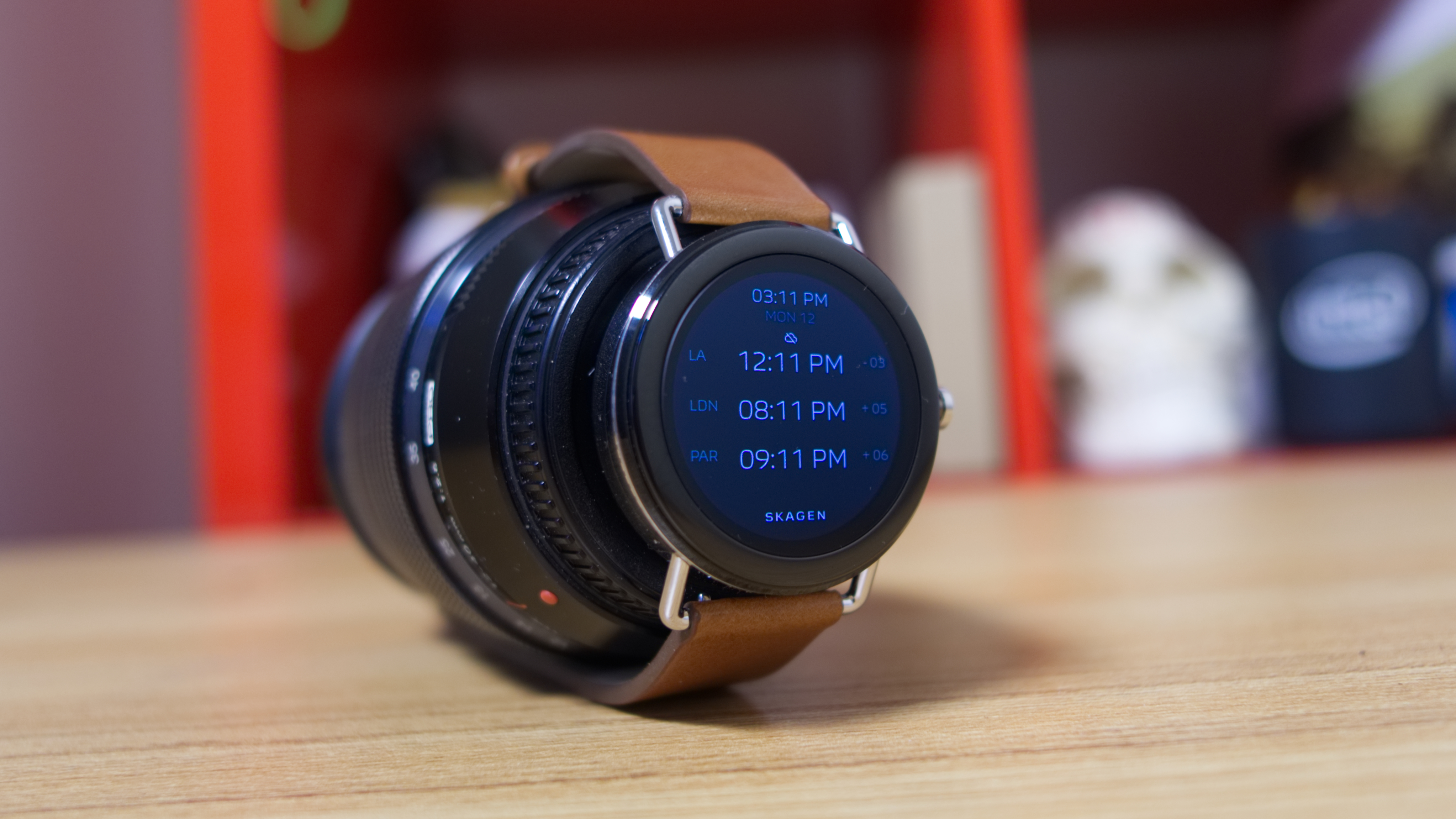Why you can trust TechRadar
The Skagen Falster runs on the latest Oreo version of Android Wear 2.0 and despite injecting it with a few software additions, it’s the same experience you’ll find on any other watch running the wrist-based OS.
Users can customize the home screen directly on the Falster with complications (adjustable micro settings to personalize your look) and some exclusive watch faces courtesy of Skagen. Beyond just staring at the home screen, navigation is simple. To access notifications, just swipe up and each will appear one-by-one. If you’d like to launch an app, pushing in the watch’s side button will pull up the launcher, letting you finger through the selection.

The highlight of Android Wear 2.0 over Android Wear 1.0 is that you can do a whole lot more with just the watch itself after you initialize the watch with your Android or iOS phone. Downloading native apps, listening to stored music via Google Play Music, and a whole lot more is possible thanks to this software. It sets the watch free from your phone. Unfortunately for the Falster, its lack of built-in GPS means you might want to keep your phone at your side during a jaunt outside.
Compatibility
Whether you have an iPhone or Android phone makes no difference if you’re looking to snag the Falster. Yet another perk of Android Wear’s second major software iteration brought more open compatibility.
It’s good news for Android owners, who have long had access to a large selection of Android Wear watches. But it’s even better news for iOS users, who for a while were stuck with the Apple Watch as the sole option – though it will only let you read, not respond to iMessages.

Performance and fitness
From a hardware perspective, the Falster is stocked with enough power to hang with the rest of the modern Android Wear watches. Namely, its Snapdragon Wear 2100 processor and 512MB of RAM work in tandem to keep things relatively speedy when booting up apps.
Simple navigation around the home menu is fluid, and drilling into tasks like dictating text messages or chirping a command at Google Assistant thanks to the built-in microphone happens without delay.
For what Skagen attempts, it succeeds with, though it leaves us wishing this smartwatch packed in features that we’ve seen even in the cheaper $159 Ticwatch E. Important stuff like a heart rate sensor, built-in GPS aren’t here, and the lack of even the little niceties like NFC and a speaker will remove this from consideration for several folks and our best smartwatch list.
As this wearable lacks fitness-facing hardware, save from the accelerometer that can track steps, there’s not a whole lot going for the Falster if you’re looking to use your smartwatch to get fit.

Google Fit comes pre-installed and, for generalists, it’s a comprehensive way of tracking activity. There’s support for all kinds of workouts and sports, including but not limited to backcountry skiing, baseball, biking, crossfit and elliptical. But while some watches are able to provide rich workout data thanks to their built-in GPS and a heart rate sensor, the Skagen does what it can without them.
The results? We wish the Falster was capable of so much more for its price, but if a step count and distance travelled are the only stats you need, the Skagen actually does a pretty good job of tracking with location data and the accelerometer. Not to mention, the watch is IP67-rated for water resistance, so it can get wet – you just might screw up the nice leather straps.
Battery
No matter how nice the smartwatch is, what lies beneath the shiny shell matters just as much, if not even more. The Falster is among the best-looking smartwatches around, but even that doesn’t stop it from suffering the same fate as other Android Wear watches before it: the horrible battery life can ruin the experience.
Running with a 300mAh battery, our test period saw the Falster’s battery life plummet throughout each day, falling from 100% to 85% in as little as one hour by merely walking around with it on. Thankfully, battery life didn’t worsen dramatically while doing activities, like tracking a walk or replying to text messages via voice commands.
But for a watch that takes nearly three slow hours to charge from a zeroed-out state with the included conductive charger, this is unacceptable. The sentiment applies broadly across the range of Android Wear smartwatches, but it rings especially true that for such a pretty watch, the fun just doesn’t last long enough.
Current page: Interface, compatibility and fitness
Prev Page Introduction, price and design Next Page Verdict and competitionCameron is a writer at The Verge, focused on reviews, deals coverage, and news. He wrote for magazines and websites such as The Verge, TechRadar, Practical Photoshop, Polygon, Eater and Al Bawaba.

